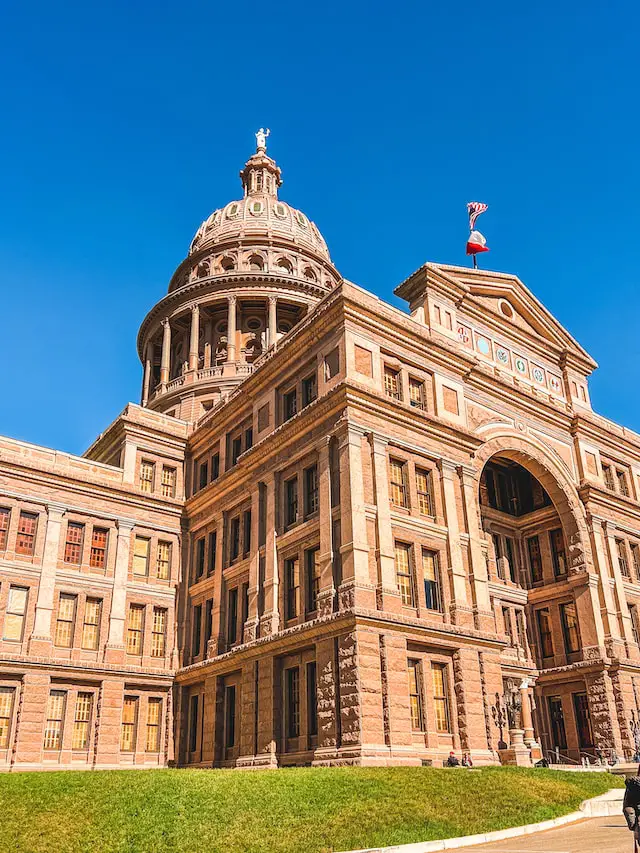Austin, TX – The Texas Legislature has recently proposed a bill prohibiting minors between 13 and 18 from using social media platforms. The bill, called House Bill A896, has been met with mixed reactions.
If passed, HB A896 would require social media platforms to verify the age of all account holders and delete the accounts of minors upon request from their parents. The bill also mandates removing all personal information collected from a minor’s account.
Proponents of the bill argue that social media use can negatively affect minors’ mental health and well-being. They believe limiting social media use for minors will help protect them from cyberbullying, addiction, and other harmful online behaviors.
Critics Cite Texas Overreach

However, critics of HB A896 argue that the bill is an overreach of government power and infringes on the rights of minors. They argue that parents should be responsible for monitoring their children’s social media use, not the government.
Additionally, some experts argue that the bill may not effectively address the issues it aims to solve. Instead, they suggest that more education and resources for parents and minors on responsible social media use may be a better solution.
The proposed bill has sparked debate and discussion among Texas lawmakers, parents, and social media companies. It remains to be seen if HB A896 will become law, but it is clear that the issue of social media use among minors will continue to be a topic of concern and debate.
Proposed Bills Requiring ID for Social Media Sign-Up Raise Concerns About Free Speech
As Utah, Texas, and Florida consider bills requiring social media users to verify their identities, concerns about the potential impact on free speech have been raised. While the bills aim to address concerns about the effects of social media on minors, critics argue that they threaten anonymity and could lead to government overreach.
Requiring real-name registration for online speech is seen as a violation of the First Amendment and could lead to the abuse of personal information by governments or hackers. The bills, if passed, are expected to face constitutional challenges, but opponents warn of the risk to free speech and anonymity online. No statements have been made by social media platforms like Facebook or YouTube on the proposed legislation.
Texas Has A History of Trying To Curtail Free Speech
There have been several bills proposed by the Texas Legislature that could impact free speech, including bills that seek to restrict protests, ban certain books from public school curriculums, and allow social media companies to be sued for censoring political speech. Additionally, there have been efforts to restrict the use of critical race theory in education, which some argue could stifle discussions of systemic racism and limit free speech in the classroom.
Critical Race Theory in the Crosshairs
On September 17th, 2021, Texas Governor Greg Abbott signed into law Senate Bill 3, which replaces House Bill 3979 and establishes new guidelines for civics education in the state. The bill requires a more comprehensive civics education curriculum, mandates civics training for teachers, and requires both sides of controversial issues to be presented in the classroom.
However, SB3 has been met with controversy due to provisions that prohibit teaching certain concepts related to race and sex, such as critical race theory and the idea that individuals should feel discomfort or guilt about their race or sex. Some critics argue that these provisions limit free speech and the ability of teachers to accurately educate students about the historical and ongoing impacts of systemic racism and sexism.
Furthermore, the bill also prohibits giving academic credit for advocacy work, which some argue could stifle student engagement in social justice issues and limit their ability to actively participate in democracy.
Supporters of SB3 argue that the bill promotes a balanced and comprehensive approach to civics education and protects students from biased or one-sided teaching. They also argue that the provisions related to race and sex promote unity and discourage division among students.
The passage of SB3 highlights the ongoing debate over civics education and the role of schools in addressing social justice issues. While the bill has been signed into law, it is likely to face legal challenges and continued debate in the years to come.
Final Thoughts Aims to Prohibit Social Media Use by Minors
The proposed Texas bill A896 has sparked a debate over the potential impacts of social media on minors’ mental health and wellbeing, and the role of government in regulating online behavior. While the bill aims to protect minors, critics argue that it infringes on the rights of both minors and adults to free speech and anonymity online. As the bill continues to be debated, it is important to consider the balance between protecting minors and upholding constitutional rights, and to seek solutions that address the concerns about social media use without limiting individual liberties.



